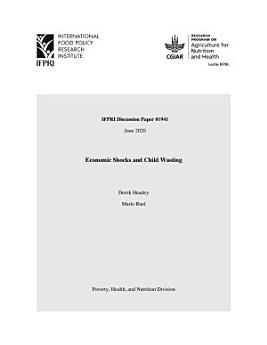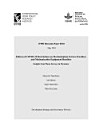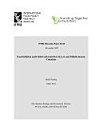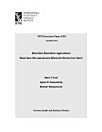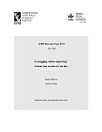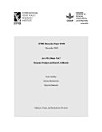Economic shocks and child wasting
Headey, Derek D. · Ruel, Marie T.
IFPRI Discussion Paper Buku 1 · Intl Food Policy Res Inst
e-Buku
37
Halaman
family_home
Layak
info
reportRating dan ulasan tidak disahkan Ketahui Lebih Lanjut
Perihal e-buku ini
In developing countries macroeconomic volatility is common, and severe negative economic shocks can substantially increase poverty and food insecurity. Less well understood are the implications of these contractions for child acute malnutrition (wasting), a major risk factor for under-5 mortality. This study explores the nutritional impacts of growth shocks over 1990-2018 by linking wasting outcomes collected for 1.256 million children from 52 countries to lagged annual changes in national income. Difference-in-difference estimates suggest that a 10% annual decline in national income increases moderate/severe (WHZ<-2) and severe wasting (WHZ<-3) by 14 and 22 percent. An exploration of possible mechanisms suggests negative economic shocks increase risks of diarrhea, fever, and maternal underweight prevalence, and reduce child dietary diversity. Applying these results to the predicted economic impacts of COVID-19 suggests that millions of pre-school children are at increased risk of wasting and wasting-related morbidity and mortality unless urgent preventative action is taken.
Berikan rating untuk e-Buku ini
Beritahu kami pendapat anda.
Maklumat pembacaan
Telefon pintar dan tablet
Pasang apl Google Play Books untuk Android dan iPad/iPhone. Apl ini menyegerak secara automatik dengan akaun anda dan membenarkan anda membaca di dalam atau luar talian, walau di mana jua anda berada.
Komputer riba dan komputer
Anda boleh mendengar buku audio yang dibeli di Google Play menggunakan penyemak imbas web komputer anda.
eReader dan peranti lain
Untuk membaca pada peranti e-dakwat seperti Kobo eReaders, anda perlu memuat turun fail dan memindahkan fail itu ke peranti anda. Sila ikut arahan Pusat Bantuan yang terperinci untuk memindahkan fail ke e-Pembaca yang disokong.
